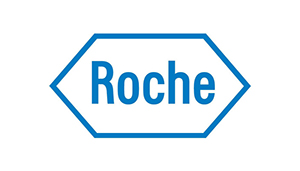Roche (PINK:RHHBY) denied rumors that it was considering selling its diabetes unit today, saying that it is “committed” to the business. The company also predicted that competition and spending on new drugs would stall its margin growth in 2017, as patents expire for its blockbuster medications.
(PINK:RHHBY) denied rumors that it was considering selling its diabetes unit today, saying that it is “committed” to the business. The company also predicted that competition and spending on new drugs would stall its margin growth in 2017, as patents expire for its blockbuster medications.
The Swiss drugmaker’s 3 top-selling cancer drugs, Rituxan, Herceptin and Avastin, bring in annual revenue of more than 20 billion Swiss francs, Reuters reported, and they face incoming competition from biosimilar copies. The 1st copies of Rituxan and Herceptin could hit the European market later this year, the news outlet said.
CEO Severin Schwan said he dialed back 2017 profit growth expectations because he plans to invest in new products, such as its cancer immunotherapy Tecentriq and Cotellic for skin cancer.
“We’re going through a transition of our portfolio but the good news is, we can overcompensate with the launch of new medicines,” Schwan explained.
“Biosimilars will hit Roche in the current year in Europe and then in 2018 in America in a big way, putting Roche under pressure to keep up new pipeline news and successful drug launches,” Michael Nawrath, a Zuercher Kantonalbank analyst, wrote in a note to investors.
Net income climbed to 12.7 billion francs in 2016, missing the 12.8 billion franc estimate from analysts. Earnings per share are pegged to grow in line with a low- to mid-single digit sales rise, the company reported.
Schwan responded to President Donald Trump’s call to drugmakers to lower prices and invest more in the U.S., saying that Roche has an established U.S. presence in its Genentech unit. The CEO also argued that innovative companies would likely still be rewarded under any new system.
He expects Roche’s new multiple sclerosis medicine, Ocrevus, to win FDA approval in March after it was delayed last December, according to Reuters.
In early December last year, Senseonics (NYSE:SENS) expanded its exclusive distribution agreement with Roche for its implantable continuous glucose monitoring system for people with diabetes.
The new agreement includes all of Europe, the Middle East and Africa, excluding Scandinavia, Finland and Israel.

